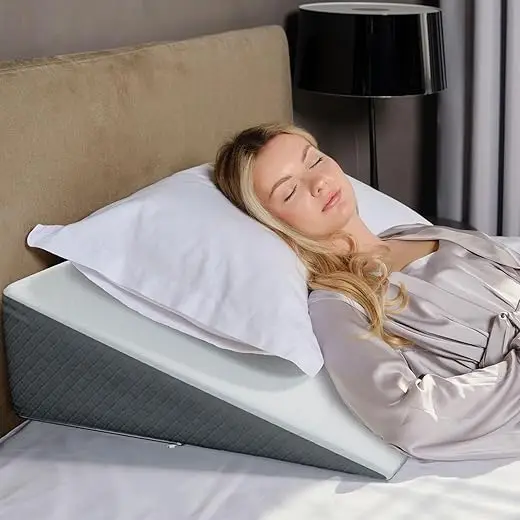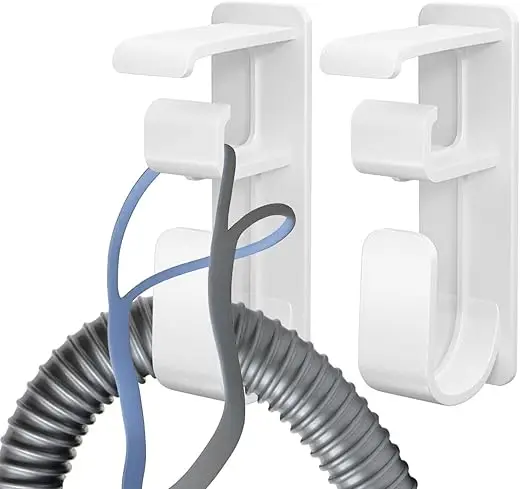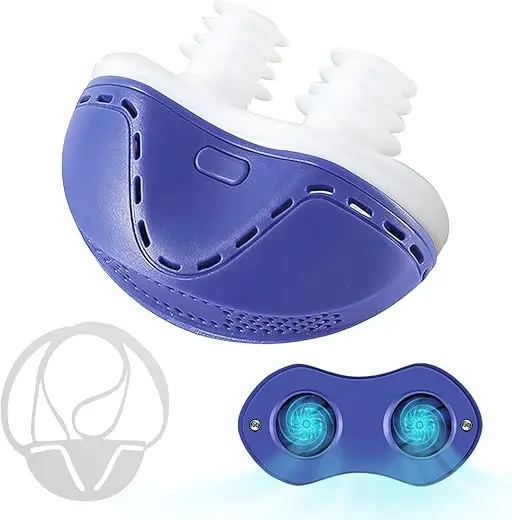Sleep medicine physicians are the primary doctors who diagnose and treat sleep apnea, though several types of specialists can help with different aspects of care. Understanding which doctor to see first and when you might need additional specialists can help you get the most effective treatment for your sleep apnea as quickly as possible.
Primary Doctor for Sleep Apnea: Sleep Medicine Physician
What is a Sleep Medicine Physician?
Board-certified sleep medicine doctors are specialists who have completed additional training beyond their primary medical specialty to focus exclusively on sleep disorders. These physicians are your best first choice for comprehensive sleep apnea evaluation and treatment.
Training Background
- Medical degree plus residency in primary specialty (internal medicine, neurology, pulmonology, or psychiatry)
- Fellowship training in sleep medicine (typically 1 year)
- Board certification in sleep medicine from the American Board of Sleep Medicine
- Continuing education requirements to maintain certification
What They Do
- Diagnose all types of sleep disorders including obstructive, central, and mixed sleep apnea
- Order and interpret sleep studies (polysomnography)
- Prescribe CPAP, BiPAP, and other positive airway pressure therapies
- Coordinate care with other specialists when needed
- Monitor treatment effectiveness and make adjustments
How to Find a Sleep Medicine Physician
Certification Verification
- American Academy of Sleep Medicine (AASM) physician directory
- American Board of Sleep Medicine certification lookup
- Hospital websites listing board-certified sleep specialists
- Insurance provider directories with sleep medicine filter
Questions to Ask When Choosing
- Are you board-certified in sleep medicine?
- How many sleep apnea patients do you treat annually?
- What sleep study facilities do you work with?
- Do you accept my insurance?
- What’s your approach to CPAP alternatives?
Other Doctors Who Treat Sleep Apnea
ENT (Ear, Nose, and Throat) Surgeons
When You Need an ENT
- Structural problems in nose, throat, or airways
- Surgical treatment options for sleep apnea
- CPAP intolerance due to nasal issues
- Chronic sinusitis or nasal polyps affecting breathing
What ENT Doctors Can Do
- Upper airway surgery (UPPP, tonsillectomy, adenoidectomy)
- Nasal surgery (septoplasty, turbinate reduction)
- Inspire therapy implantation
- Jaw positioning procedures
Subspecialties Within ENT
- Sleep surgery specialists: Focus specifically on sleep apnea surgical treatments
- Rhinology specialists: Expert in nasal and sinus disorders
- Pediatric ENT: Specialized in childhood sleep apnea
Pulmonologists (Lung Specialists)
When Pulmonologists Treat Sleep Apnea
- Complex breathing disorders during sleep
- Central sleep apnea related to lung disease
- Overlap syndrome (sleep apnea + COPD)
- Ventilator management for severe cases
What They Offer
- Advanced breathing support options
- Lung function assessment and optimization
- Complex CPAP titration and management
- Treatment of underlying respiratory conditions
Neurologists
Neurological Sleep Apnea Causes
- Central sleep apnea from brain injury or stroke
- Neuromuscular conditions affecting breathing muscles
- Seizure disorders related to sleep breathing
- Complex sleep behavior disorders
Specialized Care
- Sleep neurology subspecialty training
- Epilepsy and sleep interaction management
- Movement disorders during sleep
- Brain imaging interpretation for sleep disorders
Oral and Maxillofacial Surgeons
When You Need Oral Surgery
- Jaw abnormalities contributing to sleep apnea
- Major reconstructive surgery needs
- Orthognathic surgery (jaw repositioning)
- Complex dental appliance fitting
Surgical Procedures
- Maxillomandibular advancement (MMA)
- Genioglossus advancement
- Jaw expansion procedures
- Dental appliance coordination
Cardiologists
Heart-Related Sleep Apnea
- Heart failure causing central sleep apnea
- Atrial fibrillation related to sleep breathing
- High blood pressure from untreated sleep apnea
- Cardiovascular risk assessment and management
Collaborative Care
- Cardiac optimization to improve sleep breathing
- Blood pressure management
- Heart rhythm monitoring and treatment
- Risk factor modification counseling
Your Primary Care Doctor’s Role
When to Start with Primary Care
Initial Evaluation
- Symptom assessment and basic screening
- Risk factor identification (obesity, hypertension)
- Referral coordination to appropriate specialists
- Overall health optimization
What Primary Care Can Do
- Basic sleep hygiene counseling
- Weight management support and programs
- Blood pressure monitoring and treatment
- Diabetes management (often related to sleep apnea)
- Initial CPAP prescription in some healthcare systems
Limitations of Primary Care
- Cannot perform sleep studies
- Limited expertise in complex sleep disorders
- May not recognize subtle sleep apnea symptoms
- Referral usually needed for definitive diagnosis and treatment
Getting the Right Referral
How to Request Sleep Medicine Referral
- Describe symptoms clearly (snoring, fatigue, witnessed pauses)
- Mention partner observations of breathing problems
- Discuss impact on daily life and work performance
- Request specific referral to board-certified sleep medicine physician
Insurance Considerations
- Check if referral is required by your insurance plan
- Verify coverage for sleep studies and treatment
- Understand copays and deductibles for specialists
- Ask about in-network sleep medicine providers
Pediatric Sleep Apnea Specialists
When Children Need Specialized Care
Pediatric Sleep Medicine
- Board certification in both pediatrics and sleep medicine
- Child-specific sleep study techniques
- Developmental considerations in treatment planning
- Family education and support
Pediatric ENT Specialists
- Childhood anatomy expertise
- Tonsil and adenoid evaluation and surgery
- Growth and development considerations
- Minimally invasive surgical techniques
Finding Pediatric Specialists
Specialized Centers
- Children’s hospitals with sleep medicine programs
- Academic medical centers with pediatric sleep expertise
- ENT practices specializing in pediatric care
- Pulmonology groups with pediatric sleep focus
Questions for Pediatric Providers
- How many children with sleep apnea do you treat?
- What’s your approach to non-surgical treatment in children?
- How do you handle sleep studies in young children?
- What follow-up care do you provide after treatment?
What to Expect from Your First Visit
Sleep Medicine Physician Consultation
Initial Evaluation Process
- Detailed sleep history including symptoms, sleep habits, and partner observations
- Medical history review including medications and other health conditions
- Physical examination focusing on airway, neck, and breathing
- Discussion of treatment options and next steps
Typical Timeline
- Initial consultation: 45-60 minutes comprehensive evaluation
- Sleep study scheduling if indicated (usually within 2-4 weeks)
- Follow-up visit to review results and discuss treatment (1-2 weeks after study)
- Treatment initiation and titration as needed
Preparing for Your Visit
Information to Bring
- Complete medication list including over-the-counter supplements
- Sleep diary for 1-2 weeks before appointment
- Previous sleep studies or related medical records
- Insurance cards and referral paperwork
Questions to Prepare
- What type of sleep apnea do I have?
- What are my treatment options?
- What are the risks of not treating this condition?
- How will we monitor treatment effectiveness?
- What lifestyle changes can help?
Understanding Sleep Study Requirements
Types of Sleep Studies
In-Laboratory Polysomnography
- Overnight stay in sleep center
- Comprehensive monitoring of brain waves, breathing, heart rhythm
- Sleep technician supervision throughout the night
- Most comprehensive evaluation available
Home Sleep Apnea Testing (HSAT)
- At-home testing with portable monitoring device
- Limited monitoring compared to laboratory study
- Convenient and less expensive option
- Appropriate for suspected uncomplicated obstructive sleep apnea
Split-Night Studies
- Diagnostic portion in first half of night
- CPAP titration in second half if sleep apnea confirmed
- Efficient approach for obvious cases
- May require second night for optimal titration
Sleep Center Accreditation
What to Look For
- AASM accreditation ensures quality standards
- Board-certified sleep medicine physicians
- Registered sleep technologists (RSTs)
- Comprehensive services including follow-up care
Questions About Sleep Centers
- Is this facility AASM-accredited?
- Who interprets my sleep study?
- What equipment do you use for testing?
- How quickly will I get results?
Treatment Coordination Between Specialists
Multidisciplinary Approach
When Multiple Specialists Are Needed
- Complex cases requiring surgical and medical management
- Multiple medical conditions affecting treatment choices
- Treatment failures requiring alternative approaches
- Pediatric cases needing developmental expertise
Coordination Examples
- Sleep medicine + ENT: For surgical evaluation while maintaining medical therapy
- Sleep medicine + cardiology: For heart failure patients with central sleep apnea
- Sleep medicine + endocrinology: For diabetic patients with sleep apnea
- Sleep medicine + psychiatry: For patients with mental health conditions
Communication Between Providers
What Good Coordination Looks Like
- Shared treatment goals among all specialists
- Regular communication about treatment progress
- Coordinated medication adjustments
- Unified approach to lifestyle recommendations
Your Role in Coordination
- Keep all providers informed of treatment changes
- Share test results and specialist reports
- Ask questions about conflicting recommendations
- Maintain updated medication and treatment lists
Insurance and Financial Considerations
Coverage for Different Specialists
Understanding Your Benefits
- Sleep medicine coverage and referral requirements
- Specialist copays and deductibles
- Sleep study coverage (laboratory vs. home testing)
- DME coverage for CPAP and other equipment
Maximizing Insurance Benefits
- Use in-network providers when possible
- Get pre-authorization for expensive procedures
- Understand step therapy requirements
- Appeal denials with medical necessity documentation
Cost Considerations by Specialty
Relative Costs
- Sleep medicine: Moderate consultation fees, expensive sleep studies
- ENT surgery: High upfront costs, potential for insurance coverage
- Primary care: Lower consultation fees, limited testing capabilities
- Emergency care: Highest costs, typically not appropriate for routine sleep apnea
Financial Planning Tips
- Budget for sleep studies and equipment costs
- Consider payment plans offered by providers
- Research clinical trials for experimental treatments
- Explore manufacturer assistance programs for equipment
Red Flags: When to Seek Emergency Care
Emergency Situations
Call 911 Immediately For:
- Stopped breathing for extended periods during sleep
- Blue lips or fingernails (cyanosis)
- Severe chest pain with breathing difficulties
- Loss of consciousness related to breathing problems
Urgent Medical Attention Needed For:
- Sudden worsening of sleep apnea symptoms
- New onset severe headaches upon waking
- Signs of stroke (facial drooping, arm weakness, speech problems)
- Heart palpitations or irregular heartbeat during sleep
When to Contact Your Sleep Doctor Urgently
Serious Concerns
- CPAP equipment malfunction or urgent replacement needs
- Severe side effects from new treatments
- Significant symptom changes despite treatment
- Travel emergencies requiring equipment or prescription assistance
Telemedicine and Sleep Medicine
Virtual Consultations
When Telemedicine Works Well
- Follow-up visits for stable patients
- CPAP data review and adjustment
- Medication management discussions
- Initial consultations for straightforward cases
Limitations of Virtual Care
- Cannot perform physical examinations
- Sleep study arrangements may be more complex
- Equipment troubleshooting may be limited
- Emergency situations require in-person care
Hybrid Care Models
Combining Virtual and In-Person Care
- Initial consultation in-person for comprehensive evaluation
- Follow-up visits virtual for routine monitoring
- Annual check-ups in-person for physical assessment
- Problem visits in-person or virtual based on complexity
Future of Sleep Medicine
Emerging Specialists and Approaches
New Subspecialties
- Sleep surgery fellowships for ENT specialists
- Pediatric sleep medicine growing rapidly
- Dental sleep medicine expanding role
- Behavioral sleep medicine integration
Technology Integration
- AI-assisted sleep study interpretation
- Remote monitoring capabilities expanding
- Smartphone apps for screening and monitoring
- Wearable devices for long-term tracking
Personalized Medicine Approaches
Individualized Treatment Plans
- Genetic testing to predict treatment response
- Phenotyping to match patients with optimal treatments
- Precision dosing for medications
- Customized devices based on individual anatomy
Making the Right Choice for Your Sleep Apnea Care
Decision Tree for Choosing a Doctor
Start with Sleep Medicine Physician If:
- You have typical sleep apnea symptoms (snoring, daytime sleepiness)
- You need comprehensive evaluation and diagnosis
- You want one-stop care for sleep disorders
- Your primary care doctor recommends this approach
Consider ENT First If:
- You have obvious structural problems (large tonsils, deviated septum)
- You’re young with clear anatomical causes
- CPAP is not an option for you
- You prefer surgical solutions
See Pulmonologist If:
- You have lung disease plus sleep symptoms
- You need complex ventilator management
- You have central sleep apnea from respiratory causes
- Your case is medically complex
Questions to Help You Decide
About Your Symptoms
- Are your symptoms primarily during sleep or also during the day?
- Do you have obvious anatomical problems?
- Have you tried CPAP therapy before?
- Do you have other medical conditions affecting your breathing?
About Your Preferences
- Do you prefer medical or surgical approaches?
- How important is convenience vs. comprehensive care?
- What does your insurance cover?
- How quickly do you need treatment?
Taking Action: Your Next Steps
Getting Started with Sleep Apnea Care
Immediate Actions
- Contact your primary care doctor for referral discussion
- Research sleep medicine physicians in your area
- Check insurance coverage and requirements
- Document symptoms and prepare for your visit
Preparing for Success
- Set realistic expectations for timeline and treatment
- Prepare to be an active participant in your care
- Build a support system for treatment adherence
- Plan for lifestyle changes that may be needed
Long-term Relationship with Your Sleep Doctor
What to Expect Ongoing
- Regular follow-ups to monitor treatment effectiveness
- Adjustment periods as your needs change
- Preventive care to maintain good sleep health
- Coordination with other healthcare providers as needed
Being a Good Patient
- Follow treatment recommendations consistently
- Communicate openly about problems or concerns
- Attend scheduled appointments and testing
- Report changes in symptoms or health status promptly
The Bottom Line: Getting the Right Care for Sleep Apnea
Sleep medicine physicians are your best first choice for comprehensive sleep apnea evaluation and treatment, though other specialists play important roles in specific situations. The key is starting with proper diagnosis from a board-certified sleep medicine doctor, then building a care team as needed.
Remember:
- Board certification in sleep medicine is crucial for primary care
- Multidisciplinary approach often provides the best outcomes
- Early diagnosis and treatment prevent serious complications
- Good communication between you and your care team is essential
Don’t delay seeking care. Sleep apnea is a serious medical condition that requires professional evaluation and treatment. Contact a qualified sleep medicine physician today to start your journey toward better sleep and improved health.
This information is for educational purposes only and should not replace professional medical advice. Always consult with qualified healthcare providers about your specific sleep apnea concerns and treatment options.



